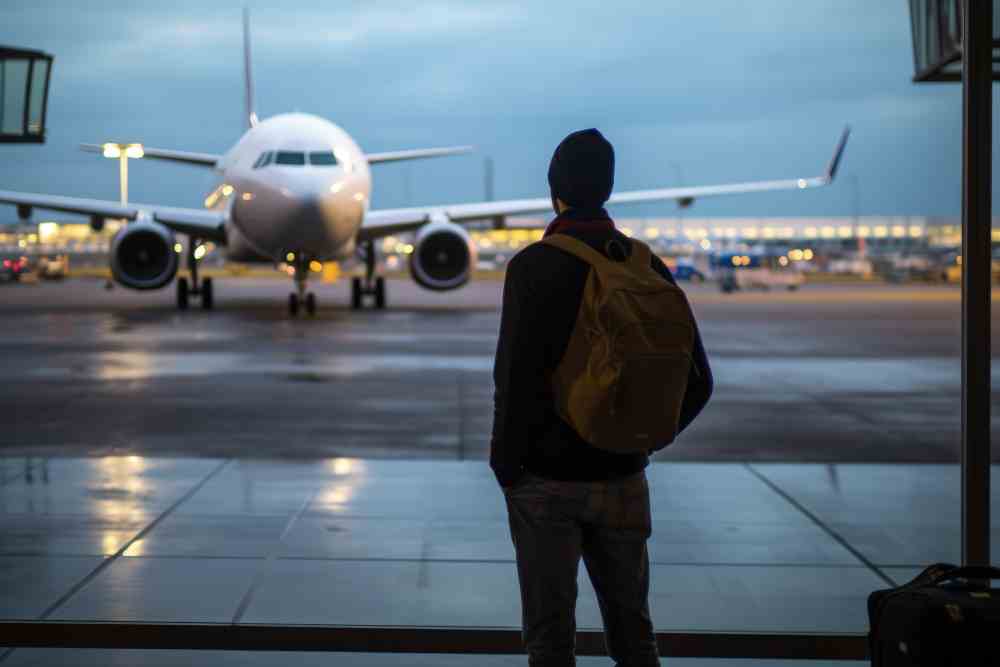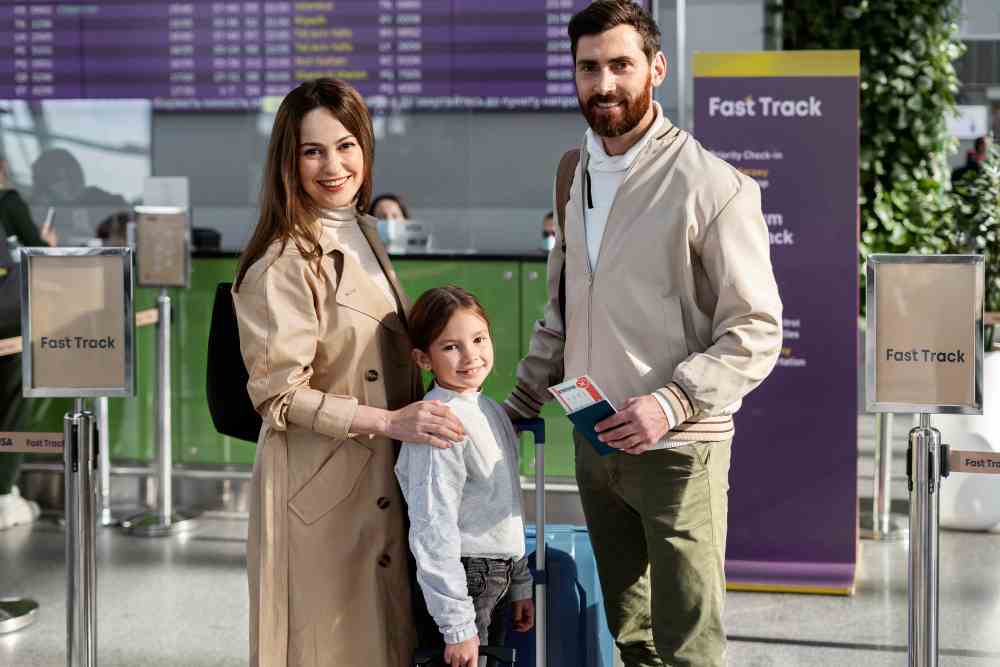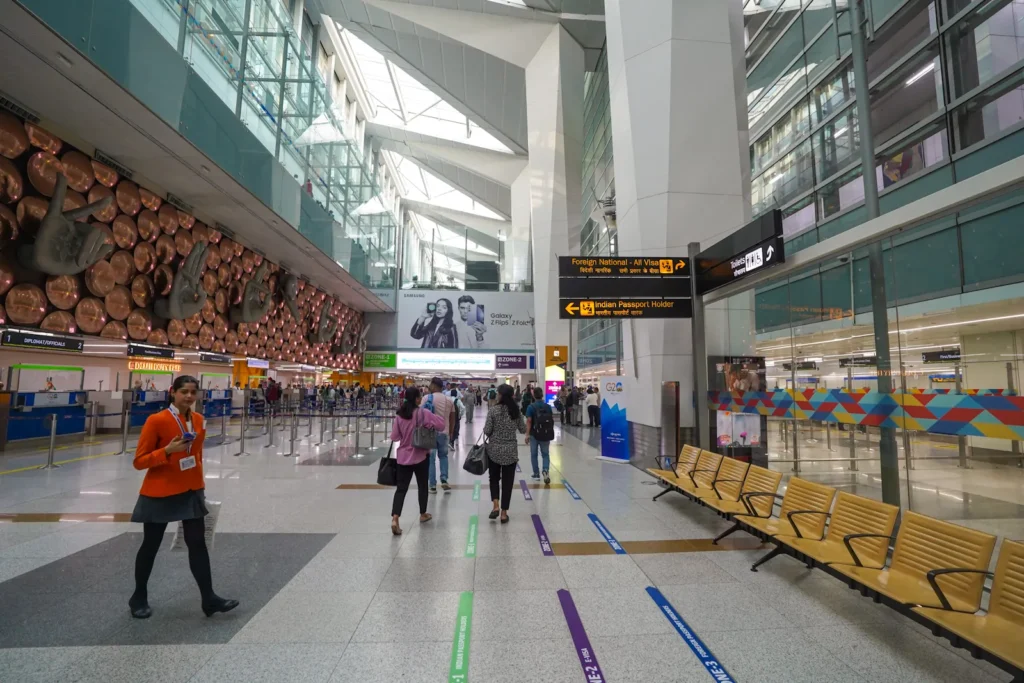Your flight just got delayed. Again. You’re stuck at the gate watching the departure time change every thirty minutes, and you’re wondering: “Don’t I deserve something for this?”
The answer might surprise you. Just weeks ago, US flight delay compensation rules underwent major changes that every traveler needs to understand. While some protections were strengthened, others that could have put cash in your pocket were quietly withdrawn. Understanding US flight delay compensation isn’t just about knowing your rights—it’s about getting what you’re actually owed when airlines fail to deliver.
If you’ve ever felt helpless watching your travel plans crumble, this guide will change that. Let’s break down everything you need to know about US flight delay compensation, your passenger rights, and exactly how to fight back when your flight doesn’t go as planned.
What Just Changed with US Flight Delay Compensation?
Here’s what you need to know right now: In November 2025, the federal government made a controversial decision that directly affects your wallet. A proposal that would have required airlines to pay cash compensation for significant delays was officially withdrawn. This means American passengers still don’t have the same protections that travelers in Europe, Canada, and other countries enjoy.
But it’s not all bad news. Earlier in 2024, new federal rules took effect that significantly strengthened your refund rights. These protections remain in place and are actually quite powerful—if you know how to use them.

The bottom line? Airlines must now give you your money back for significant disruptions, but they’re still not required to compensate you beyond that refund. Understanding this distinction is crucial for knowing what to expect and what to demand.
Understanding US Flight Delay Compensation Basics
When it comes to US flight delay compensation, knowing your rights can make the difference between feeling helpless and getting what you deserve. The United States Department of Transportation oversees airline passenger protections, and while they may not be as comprehensive as European regulations, they still offer important safeguards.
The key thing to understand is that US law focuses primarily on refunds rather than compensation payments. This might sound like splitting hairs, but it matters. A refund gives you back what you paid. Compensation gives you money on top of that for your inconvenience. Most US passengers are entitled to refunds in certain situations, but actual compensation depends on voluntary airline policies rather than federal requirements.
Think of it this way: European passengers might get their ticket price back plus several hundred dollars in compensation. American passengers typically just get the refund—unless they know exactly what to ask for from the airline’s voluntary programs.
When Are You Automatically Entitled to a Refund?
This is where current federal rules actually work in your favor. Under regulations that took effect in 2024, you’re entitled to an automatic refund if your flight is canceled or significantly delayed—and here’s the important part—regardless of the reason.
What counts as a “significant delay”?
- Domestic flights: Three hours or more
- International flights: Six hours or more
These timeframes are now clearly defined in federal regulations, which means airlines can’t play games with vague definitions anymore. If your domestic flight is delayed three hours or more, you have the right to a refund. Period.
This applies whether the delay is caused by bad weather, mechanical problems, staffing shortages, or any other reason. The airline can’t hide behind “extraordinary circumstances” to deny your refund like they used to.

There’s an important caveat though: To get the refund, you must choose not to accept rebooking or alternative arrangements. If you take the alternate flight they offer, you’ve essentially accepted their solution and given up your right to a refund. This is why it’s crucial to evaluate your options carefully before deciding.
How Fast Should Your Refund Come?
Speed matters when you’re out of pocket for a ruined trip. Federal rules now require airlines to process refunds quickly:
- Credit card payments: Within seven business days
- Other payment methods: Within twenty calendar days
The refund must go back to your original payment method. Airlines cannot force you to accept vouchers, travel credits, or any other form of compensation instead of cash. This is a huge improvement over past practices where airlines would automatically issue credits that often went unused or expired.
If an airline tries to give you a voucher when you’re entitled to a cash refund, push back firmly. The law is on your side.
Real Stories: When Flight Delays Actually Paid Off
Not every flight disruption ends in frustration. Sometimes, traveler’s who know their rights walk away with more than just their money back. Here are real examples of compensation wins:
One traveler shared how a dirty business class seat on United resulted in significant compensation. After discovering the tray table was sticky and the seat was covered in stickers from a previous passenger, they simply mentioned it to a flight attendant. United later awarded miles as an apology for the condition of the seat.
Another passenger’s in-flight entertainment system failed on a Paris to New York flight with their young child. American Airlines proactively offered compensation points without even being asked—simply because staff noticed the problem and the inconvenience it caused.
The pattern here? Airlines often compensate problems beyond just delays when passengers speak up politely but firmly. A broken seat, malfunctioning WiFi, or uncomfortable conditions might not seem related to delay compensation, but airlines have discretion to make things right.
One particularly savvy traveler turned a four-hour delay into significant compensation by documenting everything and explaining exactly how the delay affected their plans. They didn’t just complain—they provided specifics about missed meetings, hotel costs, and the professional impact of arriving late.
The lesson? Documentation plus clear communication equals results.

What Airlines Voluntarily Commit to Providing
While cash compensation isn’t federally mandated, most major US airlines have made public commitments about how they’ll treat delayed passengers. The Department of Transportation maintains a dashboard tracking these voluntary commitments.
What all ten major airlines promise:
- Free rebooking on the next available flight
- Meal vouchers for delays over three hours
What nine out of ten major airlines promise:
- Hotel accommodations for overnight delays
- Ground transportation to and from hotels
Here’s the catch that most passengers miss: Airlines aren’t always proactive about offering these amenities. You often need to ask specifically. Gate agents might not mention the meal vouchers you’re entitled to. They might not bring up hotel accommodations unless you inquire.
These commitments typically apply when delays are within the airline’s control—things like mechanical issues, crew scheduling problems, or maintenance delays. When weather or air traffic control causes delays, airlines have less obligation to provide these extras, though it never hurts to ask anyway.
The single airline that doesn’t commit to hotels for overnight delays? Frontier. Budget carriers typically offer fewer amenities during disruptions, which is one trade-off for their lower fares.
Your Baggage Rights During Delays
Flight delays aren’t the only thing covered by passenger rights rules. If your checked bag doesn’t arrive with you, you may be entitled to refunds of your baggage fees:
Domestic flights: Bags not delivered within twelve hours International flights: Bags not delivered within fifteen to thirty hours
This is separate from any compensation the airline might owe you for truly lost luggage. We’re talking about delayed bags here—ones that eventually catch up with you but arrive late.
To claim this refund, you must file a mishandled baggage report with the airline. Don’t skip this step. It creates the paper trail you need to support your claim later. Most airlines have dedicated counters or online forms specifically for delayed baggage reports.
Keep all receipts for essential items you had to purchase while waiting for your bag. While airlines aren’t required to reimburse these expenses in the US, some will consider it as a customer service gesture, especially if you provide detailed receipts and explain what you bought and why.

Step-by-Step: How to Claim What You’re Owed
When your flight goes wrong, follow this exact process to maximize your chances of compensation:
Step 1: Document Everything Immediately
As soon as you realize there’s a problem, start creating your evidence file:
- Take photos of departure boards showing the delay
- Screenshot flight status updates from airline apps
- Save all emails and text messages from the airline
- Keep your boarding pass and baggage claim tickets
- Note the exact times of announcements and gate changes
- Write down names of airline employees you speak with
Step 2: Ask the Right Questions at the Airport
Don’t assume the airline will tell you about all your options. Ask specific questions:
- “Am I entitled to meal vouchers for this delay?”
- “Will the airline provide hotel accommodations?”
- “Can you rebook me on a different carrier?”
- “Is this delay within the airline’s control?”
- “What compensation is available for this situation?”
Step 3: Decide Between Refund and Rebooking
This is crucial: If you accept rebooking, you typically give up your right to a full refund. Consider:
- How urgently do you need to reach your destination?
- Are the rebooking options acceptable?
- Would a refund allow you to make better arrangements?
- What would canceling the trip cost you beyond the ticket?
Step 4: Get Written Confirmation
If the airline promises hotel rooms, meals, or compensation, get it in writing. This means:
- Email confirmations
- Voucher codes or physical vouchers
- Documentation of what you’re entitled to receive
- Reference numbers for compensation claims
Step 5: Keep Receipts for Out-of-Pocket Expenses
If you incur costs because of the delay, save evidence:
- Meals purchased at the airport
- Transportation costs
- Hotel rooms you booked yourself
- Phone calls or internet charges
- Anything reasonable you bought because of the disruption
Step 6: File Your Claim Promptly
Don’t wait weeks to pursue compensation. Contact the airline’s customer service department:
- Use their official complaint or compensation form
- Include all documentation
- Be specific about what you’re requesting
- Reference airline policies and federal regulations when relevant
- State facts without emotional language
Step 7: Follow Up Persistently
If you don’t hear back within two weeks:
- Contact customer service again
- Reference your original claim number
- Escalate to a supervisor if needed
- Consider filing a complaint with the Department of Transportation
International Flights: Stronger Protections
If you’re flying internationally, your rights might be significantly stronger depending on your route and airline. European Union regulations provide some of the world’s strongest passenger protections.

EU Regulation 261 applies when:
- Your flight departs from any EU airport (on any airline)
- Your flight arrives in the EU on an EU-based airline
- Your flight operates within the EU
Under EU 261, passengers can receive cash compensation based on flight distance and delay length, separate from any refund. These payments can reach several hundred dollars per passenger, and they apply even for weather delays in many cases.
Similar strong protections exist in the United Kingdom, Canada, Brazil, and Turkey. If your flight involves these regions, research the specific regulations that apply. You might have rights far beyond what US law provides.
For example, a three-hour delay on a short EU flight might entitle you to immediate cash compensation plus meal vouchers and hotel accommodations if needed. The same delay on a US domestic flight only guarantees you a refund if you choose not to travel.
What Doesn’t Qualify for Compensation
Understanding the limits of your rights prevents frustration. Not every problem qualifies for compensation, and some circumstances are genuinely beyond airline control.
Generally excluded from compensation requirements:
- Severe weather conditions (thunderstorms, hurricanes, blizzards)
- Natural disasters (volcanic eruptions, earthquakes)
- Air traffic control restrictions or decisions
- Security threats or concerns
- Political unrest or government restrictions
- Bird strikes that damage aircraft
Even in these situations, you still have rights to refunds for significant delays, and airlines should still work to rebook you or provide alternative arrangements. The difference is they’re not obligated to provide additional compensation beyond the refund.
Here’s what many passengers don’t realize: Some situations that seem beyond the airline’s control actually aren’t. For example:
- Mechanical issues: Almost always the airline’s responsibility
- Crew scheduling problems: The airline’s responsibility
- Insufficient bookings: The airline’s responsibility
- Late inbound aircraft: Usually the airline’s responsibility
If an airline claims “extraordinary circumstances” to deny compensation, ask for specific details about what caused the problem. They should provide written explanation. If their reasoning seems questionable, you can file a complaint with the Department of Transportation.
Getting Bumped: A Different Set of Rules
Overbooking situations operate under entirely different regulations than delays. If you’re involuntarily denied boarding because the airline sold more tickets than seats, federal law requires specific compensation.
Involuntary denied boarding compensation depends on how long you’re delayed:
For delays under certain thresholds, airlines must compensate you based on your ticket price. For longer delays, the compensation increases. The rules are complex, but the key point is that bumping compensation is federally mandated—unlike regular delay compensation.

Smart strategy: If your flight is oversold, airlines must first ask for volunteers before bumping anyone involuntarily. Volunteers can negotiate their own compensation packages. This is where you can sometimes score serious value.
Successful volunteers have negotiated:
- Significant vouchers or travel credits
- Cash payments
- First-class upgrades on rebooking
- Multiple nights of hotel accommodations
- Meal vouchers
The key is knowing what you’re willing to accept before volunteering. If you’re not in a rush, an oversold flight can turn into a profitable situation. Just make sure the rebooking works for your schedule before accepting any offer.
How to File an Effective Complaint
When direct negotiation with the airline fails, it’s time to escalate. Here’s how to file complaints that get results:
Start with the Airline’s Executive Customer Relations
Every major airline has an executive or corporate customer relations department. These teams have more authority than regular customer service representatives and can approve exceptions to standard policies.
Find their contact information on the airline’s website or through a web search. Your complaint should include:
- Your contact information: Full name, address, email, phone number
- Complete flight details: Flight numbers, dates, departure and arrival cities, booking confirmation numbers
- Clear timeline: When you booked, when the problem occurred, what happened
- Specific documentation: Attach copies (not originals) of tickets, boarding passes, receipts, and relevant correspondence
- Exact request: State precisely what compensation you believe you deserve and why
- Relevant policies: Reference specific airline policies or federal regulations that support your claim
Escalate to the Department of Transportation
If the airline doesn’t resolve your issue satisfactorily, file a complaint with the DOT. While they can’t force airlines to pay you compensation beyond legal requirements, they do track complaints and can hold airlines accountable for not following their own policies.
The DOT complaint process is straightforward:
- Visit the Aviation Consumer Protection website
- Complete the online complaint form
- Provide all relevant documentation
- Include copies of your correspondence with the airline
The DOT takes these complaints seriously. Airlines with high complaint rates face scrutiny and potential enforcement actions. Your individual complaint contributes to this oversight.
Making Your Travel Credit Card Work for You
Many travelers miss out on valuable protections already available through their credit cards. Premium travel cards often include benefits that can complement or exceed what airlines are required to provide.
Common travel card benefits include:
- Trip delay reimbursement covering meals and hotels
- Trip cancellation or interruption insurance
- Lost luggage reimbursement
- Travel accident insurance
- Emergency assistance services
The specific coverage varies by card, so check your benefits guide carefully. Some cards reimburse delay-related expenses after just a few hours of delay, potentially giving you money for meals and hotel stays even when the airline isn’t required to provide them.
To use these benefits effectively:
- Know your coverage before you travel: Don’t wait until you’re stranded to figure out what’s covered
- Save every receipt: Credit card claims require documentation
- File claims promptly: Most cards have time limits for submitting claims
- Understand the requirements: Some benefits only apply if you paid for the ticket with that specific card
Premium cards with annual fees often justify their cost through these travel protections alone—if you actually use them when needed.
Comparing Major Airline Policies
Not all airlines handle delays the same way. Understanding each carrier’s specific policies helps you know what to expect and request.
Delta Air Lines has historically been more generous with compensation, often offering SkyMiles or credits proactively for significant disruptions. They’ve also invested heavily in operational reliability to minimize delays in the first place.
United Airlines provides MileagePlus miles or travel certificates for major problems, with amounts varying based on the situation and your elite status level.
American Airlines offers compensation through AAdvantage miles or travel vouchers when delays are within their control. Their policies have become somewhat less generous in recent years according to frequent travelers.
Southwest Airlines maintains a strong reputation for customer service during disruptions and allows free rebooking without change fees even in normal circumstances, which provides more flexibility.
Budget carriers like Spirit, Frontier, and Allegiant typically offer fewer amenities during delays, reflecting their ultra-low-cost business model. You’ll get refunds when required by law, but voluntary compensation is rare.
Strategies for Minimizing Delay Impacts
Beyond knowing your rights, smart planning can reduce how much delays affect you:
Book Morning Flights
Early flights face fewer cascading delays from problems that accumulated throughout the previous day. If something does go wrong, you have the entire day to find alternative arrangements rather than being stranded overnight.

Allow Extra Connection Time
Tight connections work great when everything runs on schedule. When they don’t, you miss your connection and face rebooking hassles. Building in buffer time—especially at busy hub airports—provides insurance against minor delays turning into major disruptions.
A general rule: Allow at least ninety minutes for domestic connections and two to three hours for international connections, more if you’re checking bags or changing terminals.
Travel with Essentials in Carry-On
If your connection is tight or your flight is delayed, having a change of clothes, medications, and toiletries in your carry-on keeps you comfortable. Even if you check a bag, pack a small carry-on with essentials.
Sign Up for Flight Status Alerts
Most airlines and flight tracking apps offer real-time notifications about schedule changes. These alerts give you early warning about problems, sometimes even before airport staff know. Early warning means more time to consider your options and potentially rebook before flights fill up.
Join Airline Loyalty Programs
Free to join, these programs often result in better treatment during disruptions. Elite status members typically receive priority rebooking and more generous compensation offers. Even basic membership can make a difference in how quickly you’re rebooked.
Frequently Asked Questions About US Flight Delay Compensation
Can I get compensated for a two-hour delay?
Under current US law, probably not unless you choose to cancel and take a refund. The significant delay threshold is three hours for domestic flights. However, airlines may voluntarily offer meal vouchers for shorter delays.
What if I miss a connecting flight due to a delay?
If both flights are on the same ticket, the airline must rebook you at no charge. If the delay is significant and you choose not to continue, you’re entitled to a refund for the unused portion of your ticket.
Do I lose my compensation rights if I check in late?
Checking in on time is generally required to maintain your rights. If you miss check-in deadlines, the airline may have no obligation to compensate you for subsequent problems.
Can I claim compensation years after a delay?
Most airlines have time limits for filing claims, typically within a year or two. File as soon as possible after the delay for best results.
What if the airline goes bankrupt before paying me?
This is rare but possible. Payment card companies sometimes help recover disputed charges. Unfortunately, compensation claims are usually unsecured debts with low priority in bankruptcy.
Does travel insurance cover flight delays?
Some travel insurance policies include delay coverage, typically reimbursing expenses after a certain number of hours of delay. Read your policy carefully to understand what’s covered.
Why European Passengers Have It Better
The contrast between US and European passenger rights is striking. EU Regulation 261 provides cash compensation for delays over three hours, even when the airline isn’t at fault in many cases. Payments range from approximately two hundred to six hundred euros per passenger based on flight distance and delay length.
This compensation is in addition to refunds and required care like meals and hotels. European airlines argue these rules increase costs passed on to consumers, but studies suggest they also incentivize better operational performance.
The Biden administration’s withdrawn proposal would have moved US rules closer to this European model. Its cancellation means American passengers continue to have weaker protections than their counterparts in most other developed nations.
Advocacy groups continue pushing for stronger US passenger rights legislation. If you feel strongly about this issue, contacting your congressional representatives can help. Consumer pressure has driven previous improvements in airline regulations.
The Psychology of Asking for Compensation
Many passengers entitled to compensation never receive it simply because they don’t ask. Airlines aren’t always proactive about explaining your rights or offering what you’re owed. Understanding the psychology of these interactions helps.
Be polite but assertive: Airline employees deal with angry passengers constantly. Standing out as reasonable and pleasant often results in better treatment. You can be firm about your rights while remaining courteous.
Use specific language: Instead of “What can you do for me?” try “I understand your policy provides meal vouchers for delays over three hours. How do I receive those?” Specific requests based on known policies are harder to deny.
Escalate appropriately: If a gate agent can’t help, ask to speak with a supervisor. Airport customer service desks often have more authority than gate agents. Don’t waste time arguing with someone who doesn’t have power to resolve your issue.
Document your interactions: Note who you spoke with, when, and what they said. This information supports your case if you need to file a formal complaint later.
Follow up in writing: Verbal promises at the airport sometimes disappear into thin air. Follow up with written communication through the airline’s customer service channels, referencing any commitments made to you.
Technology Tools for Protecting Your Rights
Several apps and services help travelers track flights, document delays, and claim compensation:
Flight tracking apps like FlightAware or FlightRadar24 provide detailed flight status information, sometimes more current than what airlines display.
Compensation claim services like AirHelp or ClaimCompass handle the entire claims process for you, taking a percentage of any compensation they successfully recover. These services are most valuable for international flights with stronger compensation laws.
Travel planning apps help you choose flights less likely to be delayed based on historical performance data. Not all airlines and routes are equally reliable.
Receipt tracking apps make it easy to photograph and organize receipts for expenses incurred during delays, essential for both airline claims and credit card benefit claims.
Teaching Airlines Better Behavior
Every compensation claim you file sends a message. Airlines track these complaints and calculate the cost of poor operational performance. When passengers consistently demand what they’re owed, it creates financial pressure for improvement.
This might seem like a small individual action, but consumer behavior shapes corporate policy. Airlines have improved various practices over the years partly because passengers fought for their rights and regulators responded to complaint data.
Your willingness to spend twenty minutes filing a complaint might not seem significant, but multiplied across thousands of passengers, it creates real accountability. The DOT uses complaint statistics when deciding where to focus enforcement resources and what new rules to consider.
What’s Next for Passenger Rights?
The withdrawal of proposed cash compensation requirements was a setback, but the fight for stronger passenger rights continues. Several factors suggest future changes are possible:
Congressional interest remains high: Multiple bills addressing airline passenger rights circulate in Congress regularly. While many don’t pass, they keep pressure on airlines and regulators.
Consumer frustration drives change: Major disruption incidents that strand thousands of passengers generate media attention and political pressure for stronger rules.
International standards create pressure: As other countries adopt stronger protections, the contrast with US rules becomes more obvious and harder to justify.
Airlines’ own performance matters: Consistent operational problems damage airline brands and create openings for regulatory intervention.
Stay informed about proposed rule changes by following transportation news and consumer advocacy organizations. When opportunities arise to comment on proposed regulations, participation matters. Regulators are required to consider public input, and strong consumer responses influence final rules.
Your Rights Start with Knowledge
Airlines count on passengers not knowing their rights. Every time you fly, you’re entering a complex system of regulations, policies, and corporate practices that can work for you or against you depending on your awareness.
The most powerful thing you can do is become an informed traveler. Know what you’re entitled to before problems occur. Understand the difference between federal requirements and voluntary airline commitments. Learn which questions to ask and what documentation to keep.
When your flight is delayed or canceled, you now know exactly what to do:
✓ Document everything immediately ✓ Ask specific questions about compensation ✓ Understand your refund rights ✓ Know what voluntary commitments apply ✓ File claims promptly and professionally ✓ Escalate appropriately when needed ✓ Use credit card benefits when available
These aren’t theoretical rights—they’re practical tools that can turn a frustrating situation into one where you receive fair treatment and appropriate compensation.
The Bottom Line on US Flight Delay Compensation
American passenger rights aren’t as strong as they should be compared to other developed nations, but they’re stronger than many travelers realize. Recent federal rules provide solid refund protections, and voluntary airline commitments add additional safeguards.
The key is knowing what you’re entitled to and being willing to ask for it. Airlines won’t always volunteer information about compensation. Gate agents might not mention the meal vouchers or hotel rooms you could receive. Customer service representatives might offer vouchers when you’re entitled to cash refunds.
Your power comes from knowledge and persistence. Keep this guide bookmarked. Reference it when delays happen. Share it with fellow travelers who might not know their rights.
The next time your flight is delayed, you won’t be helpless. You’ll know exactly what you’re owed and exactly how to get it. That knowledge transforms you from a frustrated passenger into an empowered consumer.
Safe travels, and may your flights always be on time—but if they’re not, now you know what to do about it.
Have you successfully claimed flight delay compensation? What strategies worked for you? Share your experiences in the comments below to help fellow travelers navigate these situations!
Remember to bookmark this guide and check the Department of Transportation’s website for the latest updates to passenger rights regulations.

